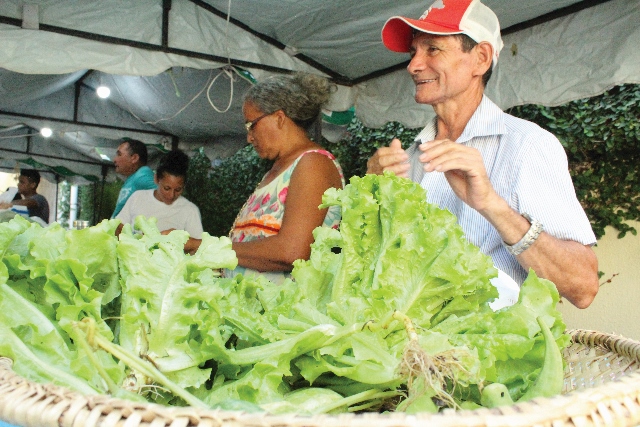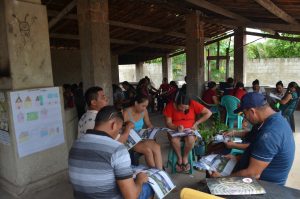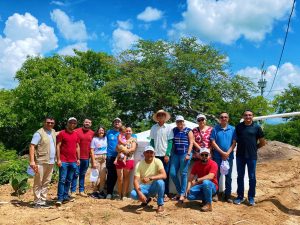Agroecological Fairs and Solidarity Network in Ceará, Brazil
Agroecological Fairs and Solidarity Network in Ceará, Brazil – Strengthening agroecological practices, solidary organization and fair trade
The Agroecological and Solidarity Fairs are spaces that welcome the knowledge and flavors of family farming. Through them, farmers sell food cultivated with agroecological principles in their yards. Steaming hot coffee, the ‘tapioca with coconut’, the corn cakes, macaxeira and bananas share place with other colorful fruits and fresh vegetables from each region, all mixed together with the vivid conversations between farmers and consumers.
Agroecological and Solidarity Fairs are based on the principles of solidarity, respect for the environment and food production free from pesticides and human exploitation. They are currently held both in the cities as in the countryside, continuing a longstanding tradition of the Brazilian Semiarid.
Ceará’s Agro-Ecological and Solidarity Fairs Network was born in 2009 from several commercialization experiences and political articulations made the Valleys of the Curu and Aracatiaçu, Central Sertão, Baturité Massif and in the city of Sobral. They are organized by the individual farmers, advisory institutions and the farmers’ social organizations. They are also a forum to discuss organizations strategies, marketing and collective solutions to overcome the many challenges of commercializing agrecological products to state institutions or to local and informal markets.
One of the coordinator of the Agroecological and Solidarity Fairs Network of Ceará is Maria de Fátima dos Santos, known as Fafá. She is a farmer herself from the Jenipapo community in the municipality Itapipoca, and explains how the first commercialization experience emerged in the Valleys of Curu and Aracatiaçu. “We spent three years participating in the course ‘Multiplier Agent in Agroecology’. The Fair grew out of this experience”, she says. The whole initiative was supported by the Center for Labor Studies and Workers’s Assistance – CETRA, within an international cooperation with ‘Manos Unidas’, through the project ‘Sustainability Paths for Family Farming’.
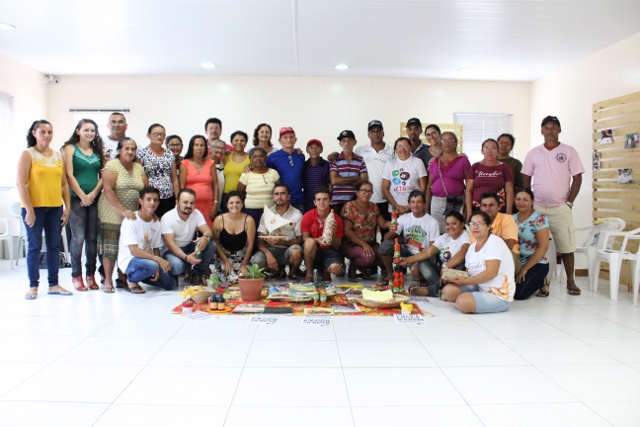
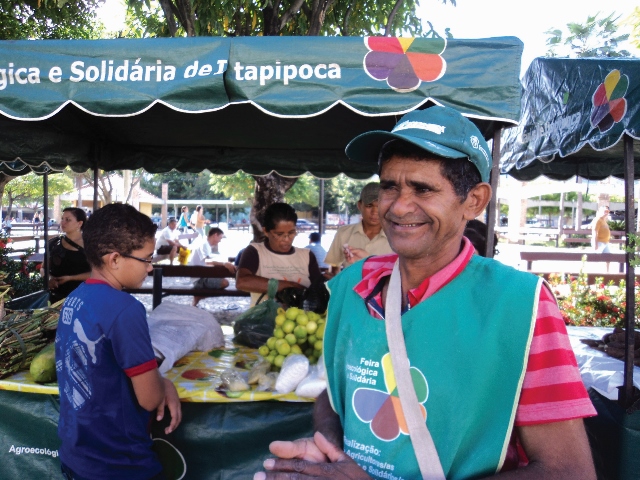
The Ceará’s Agroecological and Solidarity Fairs Network came in turn from the need farmers had to broaden their contacts and join their efforts, as explained by farmer and marketer Antônia Marta da Silva Lopes, Marcinha, from the community of Bom Jardim, in Quixadá. “The Fairs Network gave strength to our territorial groups. When you participate in a network, as there are more people, you feel stronger and inspired to mobilize. We are always side by side, shoulder to shoulder, one watching for the other, strong together in the fight”
The Network is inspired by the agroecological movement as a whole, that is ever gaining strength, as it mobilizes, their organizations, aid institutions and consumers, around the defense of family farming, agroecology, sustainability, the culture traditional peoples and communities.
Currently sixteen Agroecological and Solidarity Fairs make up the Network. Part of them happens in the cities Sobral, Itapipoca, Trairi, Apuiarés, Tururu, Paracuru, Pedra Branca, Quixeramobim and the state capital Fortaleza. To these places, come farmers from the Curu and Aracatiaçu regions, the Sertão Central and Baturite Mountains. The others happen in the rural districts and in the communities themselves, as is the case in the district of Aracatiaçu and Taperuaba (Sobral), São João dos Queiroz (Quixadá), Serrota (Pentecost) and Purão (Trairi). In addition to these, the Network also supports the Agroecological Fair at the Antonio Conselheiro Space, in the municipality of Quixeramobim.
For CETRA, the Trade Fair Network strengthens the political dimension of the farmers organizations, specially the role of the women farmers and marketers. The self-organization of farmers around solidarity economy practices, food supply and nutritional security, as a way of creating autonomy, is a countermeasure to the standardization and cultural food impoverishment related to modern ways of life. It is also a space for dialogue and debate, when qualification of the people involved make them more apt to demand for public policies and support. In the end, there is a more abundant supply of agrecological products, both in the countryside as in the cities.
